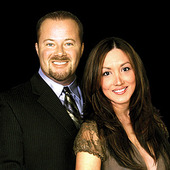Las Vegas, Nevada -- When the Las Vegas housing market crashed, many homeowners filed for bankruptcy thinking it would be a better option than doing a short sale, or “walking away.” Today, many of these people are finding out they are still legal owners of the property. Additionally, many are discovering that their bank(s) are continuing to post late payments on their credit report, month after month, long after the bankruptcy has been finalized. How is this possible?
Attorneys will argue that after a Chapter 7 bankruptcy, you are no longer obligated to repay the mortgage debt. This may be true; however, it’s not quite that simple. Until the house is sold, your name will remain on title. As long as your name appears on title, banks may continue to post late payments on your credit report for years. You cannot begin rebuilding your credit until the house is sold and the deed is transferred.
There are basically two ways to remove your name from the deed (title). One is through the short sale process, and the other is through foreclosure. Foreclosure is the worst possible option, due to the fact it can take banks up to five years (or longer) to begin the foreclosure process after a bankruptcy. Once you file for bankruptcy, your attorney will place what is referred to as an “automatic stay” on your property. This is a process which legally forbids bank(s) and other creditors from pursuing you until the bankruptcy process has been approved or rejected by the court. Banks cannot proceed with the foreclosure process until the bankruptcy is complete and the “automatic stay” has been released by the court.
After the bankruptcy is finalized, banks are in no hurry, and under no obligation to initiate the foreclosure process on your home. Some banks will let a house sit empty for years, hoping the home will appreciate, so they can receive a higher value at a future auction. There are other cases where banks cannot find the paperwork or verify the chain of title. Whatever the case may be, if your bank chooses not to foreclose, you may find yourself the holder of a “Zombie title.” A regular title can become a Zombie title when homeowners find themselves being mindlessly pursued by mortgage servicers, homeowners associations, local governments and debt collectors for bills related to a home they thought they no longer owned. This doesn’t just happen to people who file for bankruptcy. This can happen to anyone who “walks away” from their home, with the intent of letting it foreclose. Not only can this destroy your credit, it may cause additional nightmares as well.
For example, in a Zombie title scenario, you may actually be sued if someone gets injured on your property, even if you haven’t lived there for years. As the owner of record, there is a legal argument that says you are responsible for maintaining and securing the property, in a reasonable manner, to reduce the chances of someone getting hurt. For example, if your home has a pool, and you did not secure the gates or drain the pool, are you liable if a child enters your backyard and gets hurt, or worse? Are you liable if a squatter obtains access to your home and gets injured while inside your property? What if they slip in the shower or fall down the stairs? Can they sue you? These are situations that your bankruptcy attorney may have failed to discuss with you. The good news is you can still do a short sale after bankruptcy.
A short sale is the much better option. There are essentially three reasons to do a short sale. The first is to obtain a deficiency waiver. This is a written agreement from your bank NOT to come after you (sue) for the deficiency amount. The second reason to do a short sale is to minimize damage to your credit. Once the short sale is finalized, banks usually report to the three credit agencies that your account has been "settled or negotiated." This stops the late payments from being reported by your bank. When you do a short sale, your credit may take a temporary hit; however, you can begin rebuilding your credit as soon as the short sale is finalized. This is much better than a foreclosure or Deed in Lieu, where the bank can continue to post late payments to your credit for years and years. The third and final reason why a short sale is the best option is once a short sale is completed, your name will no longer appear on title, and you will no longer face the dangers and costs associated with Zombie title.
Bill and Francoise Myers, Owners of The Myers Team with Simply Vegas Real Estate are Las Vegas Top Short Sale Agents. Since 2007, they have closed more short sale transactions than any other non-lawyer affiliated Real Estate Agent or Broker in Nevada.
Contact The Myers Team at 702-677-4343
Visit their web site by clicking the links below:
FOR SHORT SALES: www.NevadaShortSaleInfo.com
FOR TRADITIONAL SALES: www.LasVegasList4Less.com


Note: The Myers Team are licensed Real Estate Agents. They are not attorneys nor licensed to offer legal advice. The content above is for information purposes only and should not be construed as legal advice.

Comments(0)